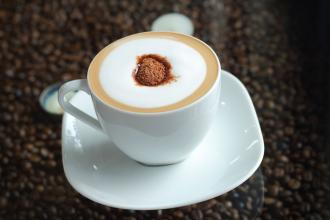Introduction to coffee flavor description of Paradise Bird Manor in Papua New Guinea
In Papua New Guinea, about 75% of coffee products come from small local farms. Many farms reclaim land in the forest, and some are in the depths of the forest, almost isolated from the rest of the world. Most of the locally grown coffee is grown under natural conditions because of the problems and high costs of transporting chemical fertilizers and pesticides to the farm.
The coffee production in Papua New Guinea is not very high, and its coffee beans are carefully washed Arabica beans. Generally washed coffee beans are full of bright fruit aromas, but do not have a strong acidity. It is characterized by a silk-like soft taste and excellent aroma, moderate acidity, and is a relatively rare variety of high-alcohol and medium-acidity coffee in coffee, whether it is used to mix Italian coffee or general comprehensive coffee. can make up for the lack of sour coffee.
The law of history always tells us that a heterogeneous new civilization must bring a period or a certain degree of loss and pain to the recipient. But the situation in Papua New Guinea looks even worse, and what is happening there can only be described as chaos and bloodshed. No one can say exactly why. Frequent violence, endless tribal vendetta, lack of resources, lack of medicine and medicine. The old is dying, and the new is not being built. People there say they don't see the hope of this country.
Women in Papua New Guinea are generally subjected to brutal domestic violence. In traditional culture, women have always been regarded as the private property of men and can be beaten and scolded at will, and they do not live together after marriage and sleep with their wives at night. Although the introduction of modern civilization made the couples there learn to live together, they never learned how to get along. In addition, men are idle and pay attention to appearance, while women farm and support their families, bearing all the burden. Some anthropologists believe that this custom stems from the imitation of birds of paradise (birds of paradise, local specialties). The male bird has beautiful feathers, while the female is not beautiful and is responsible for laying eggs and hatching eggs.
The vast majority of coffee in Papua New Guinea is organic coffee, but it is not intentional by the local people. it is really because of inconvenient transportation and economic hardship, the average coffee farmer is determined not to buy it, nor can he afford chemical fertilizer. Bird of Paradise coffee has a lively flavor, with bright sour and fruity aromas. Unlike the dreary taste of Asian beans, it has the meaning of African beans. As a result, although it is not a famous show, it is cleverly likable. It comes from the high mountains on the island, and there are birds of paradise singing on the coffee tree. In the past, my knowledge and imagination were limited to the fact that the coffee production in Papua New Guinea was not very high, and its coffee beans were carefully washed Arabica beans. Generally washed coffee beans are full of bright fruit aromas, but do not have a strong acidity. It is characterized by a silk-like soft taste and excellent aroma, moderate acidity, is a relatively rare variety of high-alcohol and medium-acidity coffee, whether it is used to mix Italian coffee or general comprehensive coffee, can make up for the lack of sour coffee.
If you taste Papua New Guinea coffee beans with Guatemala Antigua coffee, it will have a different taste. As we all know, Papua New Guinea coffee has the characteristics of fruit flavor and herbal aroma, while Guatemala Antigua coffee has a slightly spicy and cocoa flavor. The tip of the tongue has both fragrant fruit flavor and cocoa flavor. The two flavors blend and collide heartily, giving people a unique new coffee experience.

Important Notice :
前街咖啡 FrontStreet Coffee has moved to new addredd:
FrontStreet Coffee Address: 315,Donghua East Road,GuangZhou
Tel:020 38364473
- Prev

Fragrant and delicious Coffee Flavor description of Nicaraguan Lemon Manor
Since July 1927, Augusto. Cesar. Sandino led the people in a guerrilla war against the US occupation, forcing the US military to withdraw in 1933. On February 21, 1934, the Commander of the Nicaraguan National Guard, Anastacio. Somocha. Garcia assassinated Sandino at the behest of US President Roosevelt. He became president in 1936 and has since established a pro-American family for more than 40 years.
- Next

Ethiopia Sidamoth Estate Coffee Flavor Description Grind Treatment Taste Region Introduction
From a historical point of view, coffee has a great relationship with the history and religious culture of Ethiopia. In ancient times, Ethiopia was called Abyssinia, which was the country of Axum and belonged to the Solomon Dynasty. According to literature records, Hamitic people migrated from Asia Minor to present-day Ethiopia. Semitic merchants from about 7 BC
Related
- Does Rose Summer choose Blue, Green or Red? Detailed explanation of Rose Summer Coffee plots and Classification in Panamanian Jade Manor
- What is the difference between the origin, producing area, processing plant, cooperative and manor of coffee beans?
- How fine does the espresso powder fit? how to grind the espresso?
- Sca coffee roasting degree color card coffee roasting degree 8 roasting color values what do you mean?
- The practice of lattes: how to make lattes at home
- Introduction to Indonesian Fine Coffee beans-- Java Coffee producing area of Indonesian Arabica Coffee
- How much will the flavor of light and medium roasted rose summer be expressed? What baking level is rose summer suitable for?
- Introduction to the characteristics of washing, sun-drying or wet-planing coffee commonly used in Mantenin, Indonesia
- Price characteristics of Arabica Coffee Bean Starbucks introduction to Manning Coffee Bean Taste producing area Variety Manor
- What is the authentic Yega flavor? What are the flavor characteristics of the really excellent Yejasuffi coffee beans?

